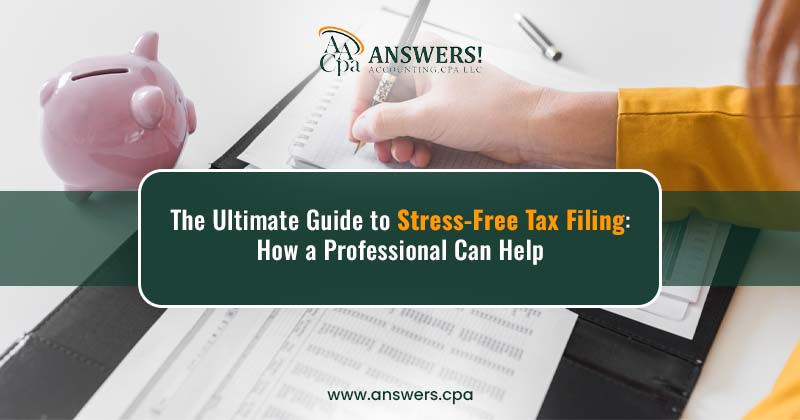A Guide to Depreciation Recapture for Real Estate
Investing in real estate presents great potential for earnings as long as one can benefit from certain tax advantages, such as depreciation deductions. But what happens when a property needs to be sold? Depreciation recapture comes into play, an aspect every real estate investor should know. In this blog, we will understand how depreciation works, how to minimize depreciation, recapture tax, common mistakes and how to avoid such mistakes among others.
What Is Depreciation Recapture in Real Estate?
When there is a rental property in your ownership, it is possible to depreciate its value by a fixed percentage every year, thus bringing down tax liability on income earned. This is the part of the tax that the Internal Revenue Service will impose when the owner sells the rental or investment property in order to recapture some of the depreciation deductions previously taken. It’s basically a tax on the depreciation claimed before.
Apart from a few exceptions, in 2024, the tax rate on depreciation recapture associated with selling a piece of real estate is 25%, and this will fluctuate due to some dynamics. This can become an added burden for many owners of property who want to put it on sale and therefore, one should learn how it functions very well.
How Does Depreciation Work for Real Estate Investors?
Depreciation allows real estate investors to allocate the cost of a rental property over a period of time, as if the property is getting used up slowly. For purposes of taxation, the IRS allows residential real estate depreciation over a period of 27.5 years whereas the depreciation for commercial property is over 39 years.
Here’s how it works:
Suppose an investor purchased a rental residential property at a price of $500,000 (land cost is not considered for depreciation). Then the investor will be able to claim a deduction of approximately $18,181 as depreciation ($500,000 ÷ 27.5 years).
This annual depreciation, however, lowers taxable rental income and hence over time less tax is paid.
In contrast, when the property is disposed of, the actual depreciation given by the IRS will be considered “recaptured”. What this means is that the government, for that matter, will not allow you to reap the benefits of taxation if the value of the asset appreciates or does not go down.
Why Does Depreciation Recapture Occur When Selling Property?
The IRS understands that all properties eventually become old and I assume a certain level of depreciation in value while calculating taxes on the profits made while reselling the property. When however the property appreciates in value or stays the same after claiming depreciation I understand where the IRS comes in and expects these taxes to be collected from you.
For instance, taking a rental property purchased at $400,000 and inclusive of $50,000 depreciation claimed over several years, the ‘adjusted cost basis’ would reflect original cost less the depreciation of $50,000 and would be $350,000 worth. After selling the property for $500,000, one would be to pay taxes for $150,000 gain, alongside tax for depreciation recapture for $50,000 depreciation previously put down on paper. Depreciation recapture tax is charged on that portion of your gain which is generated solely from the benefit of depreciation deductions claimed on the asset. This is charged independently at a rate not exceeding 25%.
How Does Depreciation Affect Property Value?
More often than not people confuse depreciation as the drop in value of an asset, and this is more of an accounting practice. It helps one to reduce their taxable earnings on paper without really affecting the market price of the asset in question. In reality, most properties are sold by the owners at prices beyond their purchase prices so that the owners make capital income.
Depreciation reduces the adjusted basis of your property, which is the amount determined by the IRS to compute the capital gains tax when the property is sold. For instance, if you’ve taken depreciation on $50,000 of a $400,000 property, automatically you have adjusted the basis to $350,000 so that on any sale over that figure capital gains and repaying of depreciation will kick in.
Who Is Subject to Depreciation Recapture Taxes?
Every real estate investor who has sought depreciation on a given income property will necessarily deal with depreciation recapture in case of a sale of the property in question. This regulation holds for both natural persons and legal entities. In case you never claimed depreciation on your rental property (even though this was available to you), the IRS treats you as having done it and there is a possibility of paying recapture tax as well.
Here’s a breakdown of when depreciation recapture taxes apply:
Residential and commercial properties: In case you have ever claimed depreciation of any residential or commercial property, then be ready to face the reconciliation when selling the property.
Improvements: including a new roof or HVAC system, and other equipment used for business activities, any depreciation will also be recaptured on sale.
Partial property sales: Even if you only sell the part of the property the rental part of the property will still be subjected to depreciation recapture.
What Strategies Can Minimize Depreciation Recapture Tax Liability?
Although depreciation recapture is unavoidable, there are strategies you can use to minimize your tax liability.
Hold the Property for the Long-Term
The longer an investor keeps the rental property the less the effect of recapture due to the fact that the loss claimed through depreciation on an annual basis sometimes exceeds the eventual recapture. Moreover, it is possible for long-term capital gains rates (up to 20%) to be more favorable as compared to the depreciation recapture rate (25%).
Invest in Depreciation-Friendly Properties
There are some properties such as those within some opportunity zones which have high depreciation allowances and thus tax reliefs. These will deter the ill effects of depreciation recapture on the investments.
Segregate costs
Cost segregation is a tax strategy that allows you to accelerate depreciation on certain parts of your property (e.g., fixtures, HVAC systems). Forwarding Depreciation takes out some income from the income stream that is taxable within the period – in the short run. Just remember that this also has recapture and so talk to an accountant first to make sure it is worth the risk.
Situational Losses And Gains
When recapture tax applies after sale of property, the owners news selling or other loss properties even to give out capitalized losses. For instance, incurring a capital loss on property sale during the same period may reduce recapture resulting from sale of other properties.
What Are the Exceptions to Depreciation Recapture?
There are a few scenarios where depreciation recapture doesn’t apply or the tax burden is significantly reduced:
Primary Residence: In the case of any property that is the primary residence for the owner rather than rented out for income purpose, there will be no depreciation recapture. However, if there was renting of this house prior to moving in, that period will be subject to recapture.
Loss on Sale: Property is in loss when sold in a situation where depreciation recapture does not apply. The only circumstance under which one can be subjected to recapture tax upon selling his property is making a profit from the sale.
Inherited Property: In situations of inheritance math “depreciation recapture” losses cannot be measured because the asset is revalued. Rather, the net value at the point of the death of the previous owner is the new owner's basis as opposed to the net depreciated value.
How Can a 1031 Exchange Help with Depreciation Recapture?
The exchange of real estate properties which is otherwise known as the 1031 Exchange allows for deferring capital gains tax and is available for sale and if the profits are used to buy real estate of a similar kind within certain time limits. This is a very useful strategy for the real estate investors who wish to expand their investments without any large tax payments.
Here’s how a 1031 Exchange can help:
Defer Taxes: When you exchange properties you can extend your capital gains and depreciation recapture tax exposure indefinitely or simply because you acquired a new property.
Continue to Build Wealth: One can secure their real estate investments and exchange as many properties as they wish to without paying any taxes.
Pass on Property Without Recapture: As long as 1031 Exchanges are being done and one eventually dies, the property gets passed on to the heirs with a stepped up basis and hence no depreciation recapture.
What Common Mistakes Should Property Owners Avoid Regarding Depreciation Recapture?
Not Claiming Depreciation: Some investors make a mistake by not depreciating their properties, thinking this way they will not have to face any consequences of depreciation recapture in future. This is not true as the IRS will treat the property as if you have taken depreciation and put the time limitation on this which means that you will still incur recapture taxes.
Selling Without Considering a 1031 Exchange: Should you not have A 1031 Exchange in mind when disposing of your property, tax repercussions that would otherwise have been avoided may arise.
Misunderstanding Depreciation Timeframes: Understand from the outset how depreciation applies to your property (27.5 years residential, 39 commercial). Not factoring these in could create a problem with the calculations of depreciation recapture.
How Can Outsourcing with Global FPO Help?
In case of challenging tax issues relating to depreciation recapture, for instance, having a partner who is capable of financial management is worth a lot. This is how Global FPO can help you:
Professional tax advice: Global FPO provides professional tax planning services in order to reduce the amount of the liability concerning depreciation recapture for the client.
1031 Exchange Assistance: Whether it is structuring a sale for a 1031 Exchange or improving the tax playing field on real properties owned by a person or an entity – Global FPO able to help.
Managing Depreciation: Depreciation is one thing that has to be done right, and Global FPO will make sure that you do not get dirty with the IRS about it.
All-Encompassing Financial Help: Global FPO offers customized financial services for property investors, starting from simple bookkeeping all the way to full accounting services.
Maximize Your Investment with Smart Tax Strategies
It is important for real estate investors to know the implications of depreciation recapture but these tax regulations do not have to be daunting when you understand them. Whether you want to reduce tax payable or enhance your property portfolios, it helps to work with an experienced firm such as Global FPO. Contact Global FPO today and allow us to assist you in enhancing your returns while ensuring compliance with taxes.
The sensible real estate investing begins with the proper environment of the partners of Global FPO and the hinting of the beginning types of real estate tax-making strategies!
Frequently Asked Questions (FAQs)
How does depreciation recapture affect inherited properties?
When a property is inherited, the depreciation recapture does not apply because the basis is stepped up to the market value at the time of the original owner’s death.
Can I deduct depreciation on land?
No, land is not depreciable. Only the structure and improvements on the land can be depreciated.
Is there a time limit on when depreciation recapture applies?
Depreciation recapture applies whenever you sell the property, regardless of how long you’ve held it.
What happens to depreciation recapture if I sell my property at a loss?
If you sell the property at a loss, there is no depreciation recapture. You cannot owe recapture tax on a sale that results in a loss.
Do state taxes apply to depreciation recapture?
Yes, some states impose their own depreciation recapture taxes, which may differ from federal rates. It’s important to check your state's tax laws regarding recapture.







